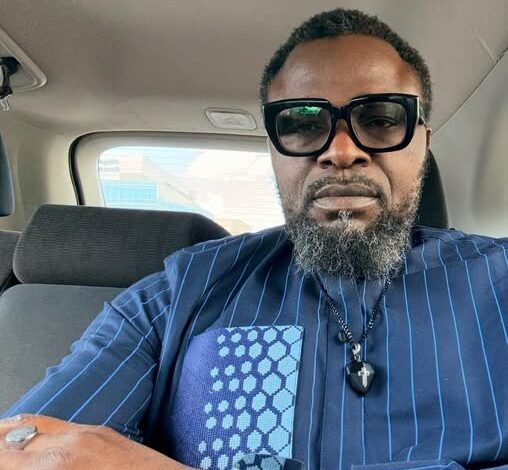Christ and Culture: Making a Case for Yoruba Identity Without Idolatry
#HomilyFromthePew

…A Memo to My Son and to Every Parent Raising Children Between Faith and Heritage
“For though I am free from all men, I have made myself a servant to all, that I might win the more.”1 Corinthians 9:19
Premise
I am a 55-year-old man raising my son, who will soon turn four. I am deeply committed to both our faith and our culture as Yoruba people. I want my son to speak Yoruba, to understand our proverbs, our greetings, and our rhythm of life.
It has not been easy. My wife and I had spoken mainly English in our home for fifteen years before his birth, and that has shaped our consciousness. Now, we are learning to weave Yoruba into our home again. Some days I wonder if I am winning or losing this battle, but I keep trying.
This struggle reflects a deeper longing: to help my son know that his Yoruba identity and his Christian faith are not enemies. I want him to grow without confusion about who he is, a Yoruba boy and a child of God.
Every culture, before Christ came, including the Jewish one, searched for God. The Yoruba were no different. Each civilization attempted to touch the divine. But when Christ came, He became the fulfillment of that search. That truth anchors this reflection: there is no conflict between faith in Christ and a reverent embrace of one’s God-given culture.
Culture vs. Worship: A Necessary Distinction
To be Yoruba is not to be an idolater. Yet for generations, especially in some Christian circles, these have been wrongly equated.
Culture is broader than worship. It includes language, proverbs, music, clothing, food, family life, respect for elders, and community. Worship, on the other hand, is about allegiance to deity, whom we adore, obey, and sacrifice for.
The Bible itself models this distinction. In Acts 17:28, Paul quoted Greek poets, not to endorse their ‘gods,’ but to connect their cultural insights to the revelation of the “Unknown God,” made known in Jesus Christ.
In the same way, Yoruba proverbs that affirm wisdom (ọgbọ́n ju agbara), roles of elders in the community (àgbà kì wà lọ́jà kí orí ọmọdé wọ́), or encourage communal harmony are not idols. They are reflections of divine order.
Christians err when we reject culture wholesale, mistaking every Yoruba expression for paganism. The truth is simple: culture can be affirmed; idols must be rejected.
The Idol Question: Scripture’s Clarity
Scripture is clear:
“You shall have no other gods before Me.” Exodus 20:3–5
“Flee from idolatry.” 1 Corinthians 10:14
Yet Paul also reminds us:
“An idol is nothing in the world, and there is none other God but one.” 1 Corinthians 8:4
The Christian calling, then, is discernment, not demonization.
We reject the worship of idols not the heritage of identity.
A Yoruba Christian can eat iyan (pounded yam), bear names like Olorunfemi, Ajenifuja, Ayansola, Odugbemi, or Awokoya, and speak Yoruba proverbs without offense to God. The line is crossed only when carved images or ancestral spirits are treated as divine.
Error of Translation and the Impact on Our Faith
Scholars have long debated whether the translation of the Bible, from Hebrew and Greek to English and later to indigenous languages, has introduced distortions.
One often-cited example in Yoruba is the translation of “Èṣù” as the equivalent of “Satan.”
Many argue this is inaccurate. They further posit that inguistically and theologically, Èṣù in Yoruba cosmology represents a complex trickster figure, not the embodiment of evil that Satan represents in Judeo-Christian theology.
While this debate is important for scholars, a deeper question lies underneath: How should proper names in Scripture be handled?
The Principle
In translation, especially of sacred texts, proper names should be preserved, not translated.
- David should remain David, not Dàvídì.
- John should remain John, not Jóhánù.
- Satan should remain Satan, not Satani.
- Jesus should remain Jesus, not Jésù in any way that localizes or diminishes His identity.
This principle preserves both historical accuracy and theological purity. Unfortunately, early translators often localized names to aid pronunciation or familiarity. That practice later shaped African translations, including the Yoruba Bible, where linguistic adaptation sometimes overshadowed doctrinal precision.
Why It Matters
Biblical names carry identity, covenant, and destiny. Altering them can blur doctrine and confuse meaning. When “Jesus” is assimilated into pre-existing deity categories, it risks conflating the Incarnate Son of God with lesser spiritual archetypes.
Translations must therefore be faithful, clear, and reverent. The goal is not to diminish the beauty of indigenous languages, but to maintain the authority and purity of the biblical message.
Theological Balance
Even so, we must remember: faith is not bound by language.
Language is a vessel of revelation, not its source.
The real issue is not who Èṣù was in traditional Yoruba belief, but who Satan is as revealed in Scripture, a defeated adversary under Christ’s authority. Whether one says Satan, Devil, or Èṣù, the truth remains: his defeat was sealed at Calvary.
History Bears Witness
The history of Yoruba Christianity testifies to this.
Revivalists such as Apostle Joseph Ayo Babalola, Prophet T. O. Obadare, and Bishop Bola Odeleke preached in Yoruba using Èṣù for Satan. Yet through them, entire communities were converted, the sick were healed, and demonic strongholds collapsed.
As a boy growing up in Ondo, I saw Archbishop Benson Idahosa preach in English while interpreters rendered “Satan” as Èṣù. Miracles still flowed. The Holy Spirit bore witness that power lies not in pronunciation but in revelation, the revelation of Jesus Christ as Lord.
A Corrective View of Yoruba Cosmology
Whatever Èṣù represented in ancient Yoruba thought cannot be accepted as theological truth. It reflects a people’s search for God, not divine revelation itself.
Like Paul at Mars Hill (Acts 17:22–31), our mission is not to validate ancestral constructs but to reveal the God they sought without knowing. Paul did not legitimize idols; he used them to declare Christ.
Likewise, Yoruba Christians must neither romanticize traditional religion nor ignore translation errors. Culture must sit under Scripture, never above it.
Truth and Faith
Truth demands that we acknowledge translation errors.
Faith demands that we look beyond them.
Èṣù may have been misnamed, but the Gospel remains unchanged.
Christ’s power transcends language. The enemy, whatever he is called, remains defeated.
Our focus must stay on the unchanging foundations of Christian faith: salvation in Christ alone, victory through His cross, and redemption for all who believe.
Christ as the Fulfillment of Yoruba Heritage
In Christ, culture is not destroyed, it is fulfilled.
“I have not come to abolish the law but to fulfill it.” Matthew 5:17
Yoruba reverence for elders mirrors the biblical command to honor father and mother. Yoruba family cohesion reflects God’s plan for generational blessing. Yoruba love for truth aligns with Christ, who is “the Way, the Truth, and the Life.”
Yoruba proverbs about sowing and reaping echo Galatians 6:7.
What Yoruba culture perceives in fragments, Christ perfects in fullness.
To be Yoruba and Christian is not contradiction, it is completion.
Idolatry Rejected, Identity Affirmed
How can a Yoruba Christian embrace culture without embracing idols? Through balance:
- Reject idol worship, for “there is no other God but one.” 1 Corinthians 8:4
- Affirm Yoruba language, wisdom, and values, for “every good and perfect gift is from above.” James 1:17
- Reframe heritage in Christ, for “if anyone is in Christ, he is a new creation.” 2 Corinthians 5:17
A Yoruba Christian may eat traditional food, dance to Yoruba drums, preach in Yoruba idioms, and wear agbádá or ìró àti bùbá, and still be wholly Christian. The danger lies not in culture, but in misdirected worship.
Beyond Yoruba, A Universal Lesson
This is not only a Yoruba issue. Everywhere the Gospel travels, it meets culture and must redeem it. The temptation is always the same: to merge them in compromise, or to separate them in hostility. Scripture teaches a better way:
“Do not be conformed to this world, but be transformed by the renewing of your mind.” Romans 12:2
Christ does not erase culture; He redeems it. He purifies what is noble, discards what is idolatrous, and sanctifies what is beautiful.
A Call to Yoruba Christians
It is time to stop equating Yoruba with Òrìṣà.
To be Yoruba is not to bow to idols, it is to be dignified, communal, wise, and resilient.
To be Christian is to bring all these virtues under the lordship of Christ.
Our children must know they can speak Yoruba without shame, bear Yoruba names with pride, and live with Yoruba dignity while worshiping Jesus as Lord. Christianity does not erase heritage, it fulfills it.
“I am unapologetically Yoruba and unapologetically Christian.
My culture gives me language, wisdom, and rhythm.
My faith gives me salvation.
In Christ, I am free to honor both, rejecting idolatry, but embracing identity.”
Do have an INSPIRED week ahead with the family.





